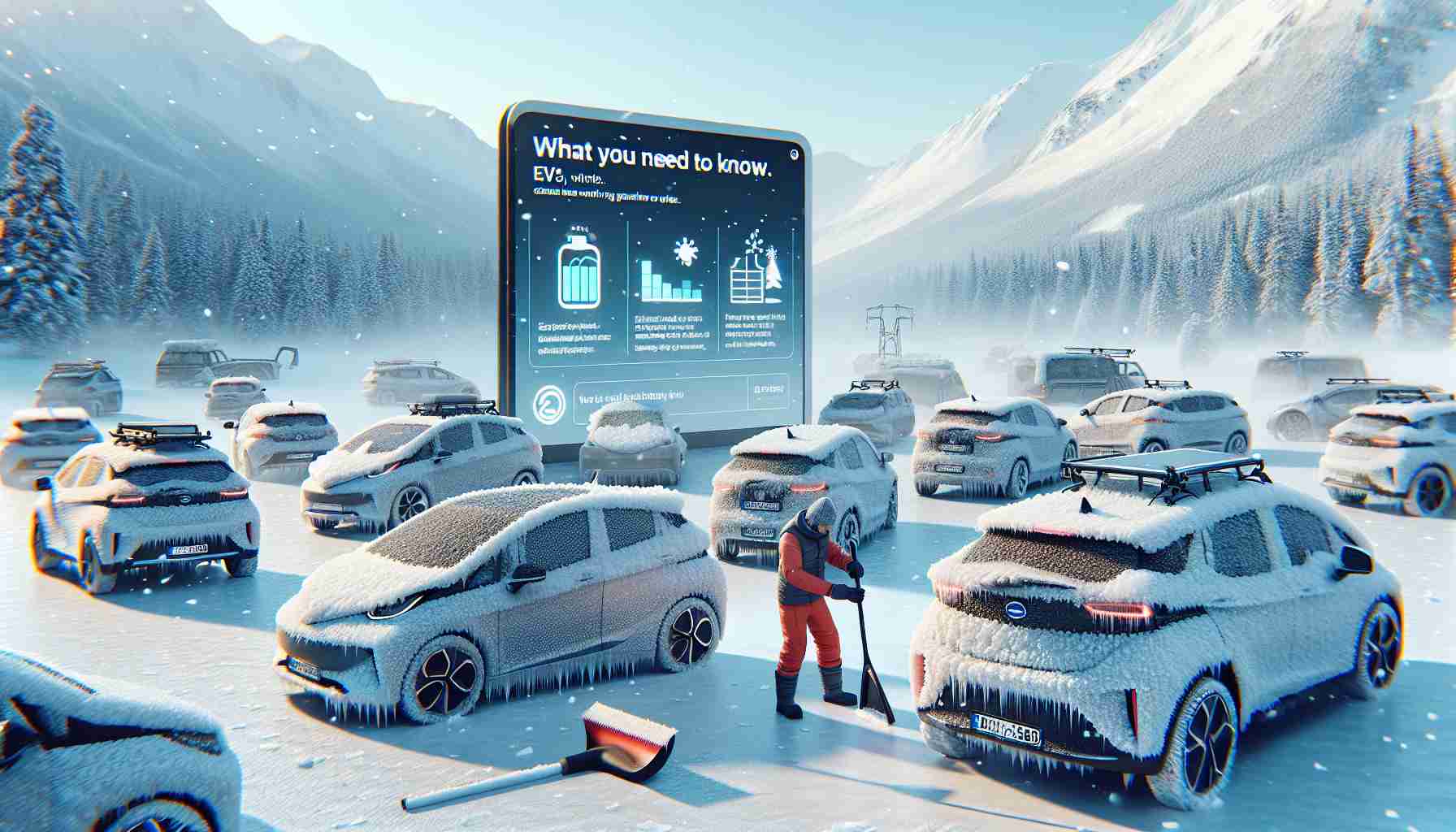As electric cars become more widespread, owners are discovering winter-specific challenges with their vehicle batteries. In cold temperatures, electric vehicle (EV) batteries experience a significant drop in performance, revealing a crucial link between battery efficiency and temperature shifts.
Why do EV batteries struggle in the cold? The core issue lies within the lithium-ion batteries that power most EVs. These batteries depend on specific chemical reactions to store and dispense energy. Colder weather increases the internal resistance, which obstructs the flow of lithium ions necessary for energy transfer. As a result, the energy storage and output capacity declines noticeably.
Additionally, freezing conditions thicken the battery’s electrolytes—these substances enable ion movement—further reducing energy effectiveness. Consequently, the vehicle’s driving range can shrink by about 20-30% during winter, which is challenging for users aiming to maximize their range.
Winter not just a battery issue: Cold weather also forces EV drivers to use extra power for heating and defrosting. Unlike cars with internal combustion engines that utilize engine heat, EVs must draw warmth directly from the battery, accelerating energy consumption and degrading performance.
Despite these challenges, EV makers are proactively addressing the issue. Many new models include preconditioning systems that prepare the battery and cabin while still charging. Some manufacturers are developing EV batteries capable of recouping 185 miles in just five minutes of charging, hinting at a more resilient future for electric vehicles in all climates.
The Unseen Winter Woes of Electric Vehicles: What You Need to Know
The Cold Reality of Electric Vehicle Innovation
As electric vehicles (EVs) rise in popularity, they promise a sustainable and eco-friendly future. However, one challenge that remains under-discussed is their performance in colder climates. While the issues with battery efficiency in low temperatures are known, intriguing new developments are emerging in this field.
Engineering Solutions: More Than Just Designs
Researchers at several institutions are investigating novel materials and battery chemistry approaches to mitigate the effect of cold on lithium-ion performance. Among these are solid-state batteries, which could take the place of traditional liquid electrolytes, being more resistant to temperature fluctuations. Solid-state technology promises to improve efficiency and safety, but scalability and costs remain significant hurdles.
Understanding the Challenges: How Does This Affect You?
What does this mean for consumers and what implications do these challenges have for the future of EV technology? The range anxiety that drivers feel in winter is very real. A typical question is: Should I invest in an electric car if I live in a cold region?
Ultimately, the decision might depend on how much advancement is made in battery technology. While preconditioning systems are an excellent interim fix, they come with their own energy demands. Are we solving one problem by creating another?
Advantages and Disadvantages: A Double-Edged Sword
Advantages:
– Awareness of these issues drives innovation in battery technology and vehicle design.
– New technologies like solid-state batteries and enhanced preconditioning systems are paving the way for greater efficiency.
Disadvantages:
– Current generation batteries may struggle to perform optimally in cold weather, leading to reduced driving ranges.
– Some solutions like enhanced heating might increase electricity usage, countering gains in sustainability.
Paving the Road Ahead: Does Progress Guarantee Success?
As industries push forward with these innovations, questions remain about the effectiveness and accessibility of these technologies. Will the next generation of EVs prove more resistant to temperature fluctuations, or will these solutions add to the cost, making EVs less accessible to some consumers?
Whether you’re considering purchasing an electric car in the near future or just curious about these technologies, the trends suggest a promising yet challenging path forward. The resilience of EVs in varied climates is a pivotal factor for their ubiquitous adoption worldwide.
For more information and updates on electric vehicle technologies, visit Tesla and Ford.







